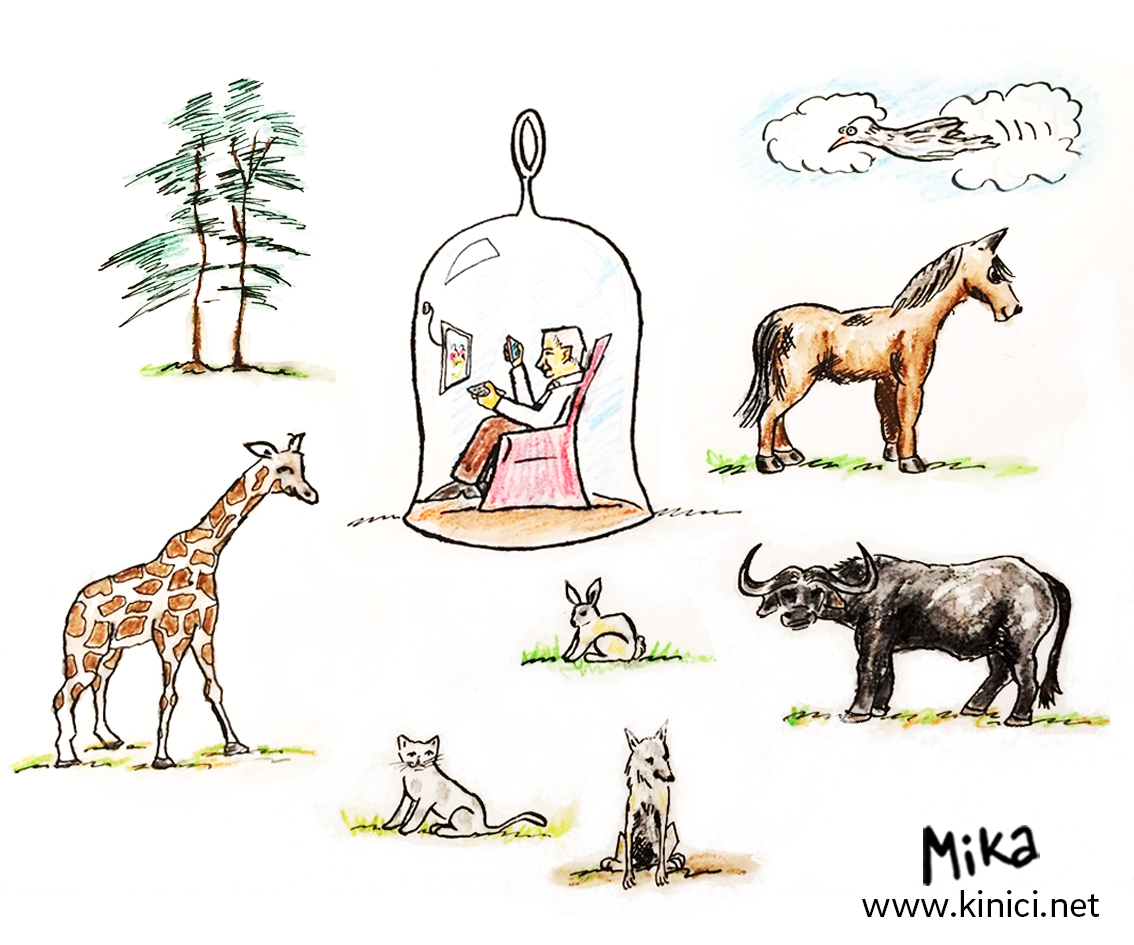Since way back, humans declared themselves as superior species. Since beginning of times they strived to control the nature, and thereby restrain wild impulses in animals. Day by day humans became aware of their "power" over nature.
The laws of nature
Animals honour laws of nature – instinctively, whereas humans do not – consciously. We protected ourselves – at least we believe so – from repercussions of breaking the laws, but this does not mean that repercussions of destroying, polluting and distancing ourselves from nature, for now, do not have indirect negative effect on us. At least the most obvious one that we are loosing touch with nature.
Taming
The first animal that was ever domesticated was the dog – around 12,000 years ago. At this time, there was around five million humans. Since then, in less than 5,000 years, human population got three times bigger, so around 7,000 years ago there was 15 million humans. Today, there is over seven billion humans on Earth.
The taming of animals made human life much easier, but in time it got out of control. Pigs were domesticated around 8,000 years ago, and with creating stockpiles of grains, along came the rodents. This was the time to domesticate the cats since they are convenient in fighting the rodents. This was done 5,000 years after domestic dog was created.

In the setting in which pigs and goats were domesticated and were living with humans, humans continue to alter the nature. They try to improve animal features; improving implies more benefit that humans gain from animals. Under human influence, anatomy, fur and behaviour slowly change. Continuous addition of changes in domestic animals very often brings striking abnormalities or odd features. Some mutations (changes) are discarded and some kept – depending on human needs.
19th century is the century of creating new species, especially its second half, because industrialization and profitability research boosted scientific animal cultivation and made it possible.
Size, skin, disposition (features) and productivity were shaped. This is how today's animals' looks and features were created. Humans modify animal fertility. They are more sexually active, therefore more productive – making humans profit. If the goal is producing more meat – the ones with more of it will be bred. It is the same with obtaining more milk or wool.
 The result is easily noticeable in wild boars which, normally, can give birth to 4 to 6 piglets. Humans managed to raise its capacities up to 12 young. A good example, also, is wild hen which can lay 60 eggs per year, while its domesticated cousin can lay more than a hundred. Nowadays, hybrid egg-bearing hens can lay over 300 hundred eggs per year. Today, there is around 800 breeds of livestock, over 900 breeds of sheep, around 400 breeds of goats and pigs, about 800 breeds of domestic dogs.
The result is easily noticeable in wild boars which, normally, can give birth to 4 to 6 piglets. Humans managed to raise its capacities up to 12 young. A good example, also, is wild hen which can lay 60 eggs per year, while its domesticated cousin can lay more than a hundred. Nowadays, hybrid egg-bearing hens can lay over 300 hundred eggs per year. Today, there is around 800 breeds of livestock, over 900 breeds of sheep, around 400 breeds of goats and pigs, about 800 breeds of domestic dogs.
In many countries there are no wolves or other types of wild dogs. Endangerment of canids in wilderness is alarming, especially with certain species.
On the other hand, the number of domestic dogs is on the raise. And we are the ones responsible for their existence. We took them from nature and adjusted them to our needs. They did not ask for it. Therefor, if we did take them from nature, they are our responsibility. They are victims of humans. To many, stray dogs (which are also domestic dogs!) are a nuisance. They act irresponsible towards strays, neglect them, and very often cruelly treat them – abuse them. And the reason for so many strays being in the streets is again and only – humans. And what a paradox that with direct human influence the number of breeds grows. Breeds that are created are further and further from their natural appearance and features.
Rene Descartes claimed that only humans have consciousness and genuine intelligence or any form of more complex mental ability. The church backed that opinion. Later on, industrial revolution brought immense abuse over animals due to profit. It kept going on. In the 60s, in the 20th century, there were attempts to teach them English language by injecting them with LSD during testings. Contemporary society that advertises healthy diets, animal care, genuinely despises what was done in the past but essentially does not do anything for the animals – on the contrary. Because human tames the nature, only the ways of conducting it changed throughout history.
